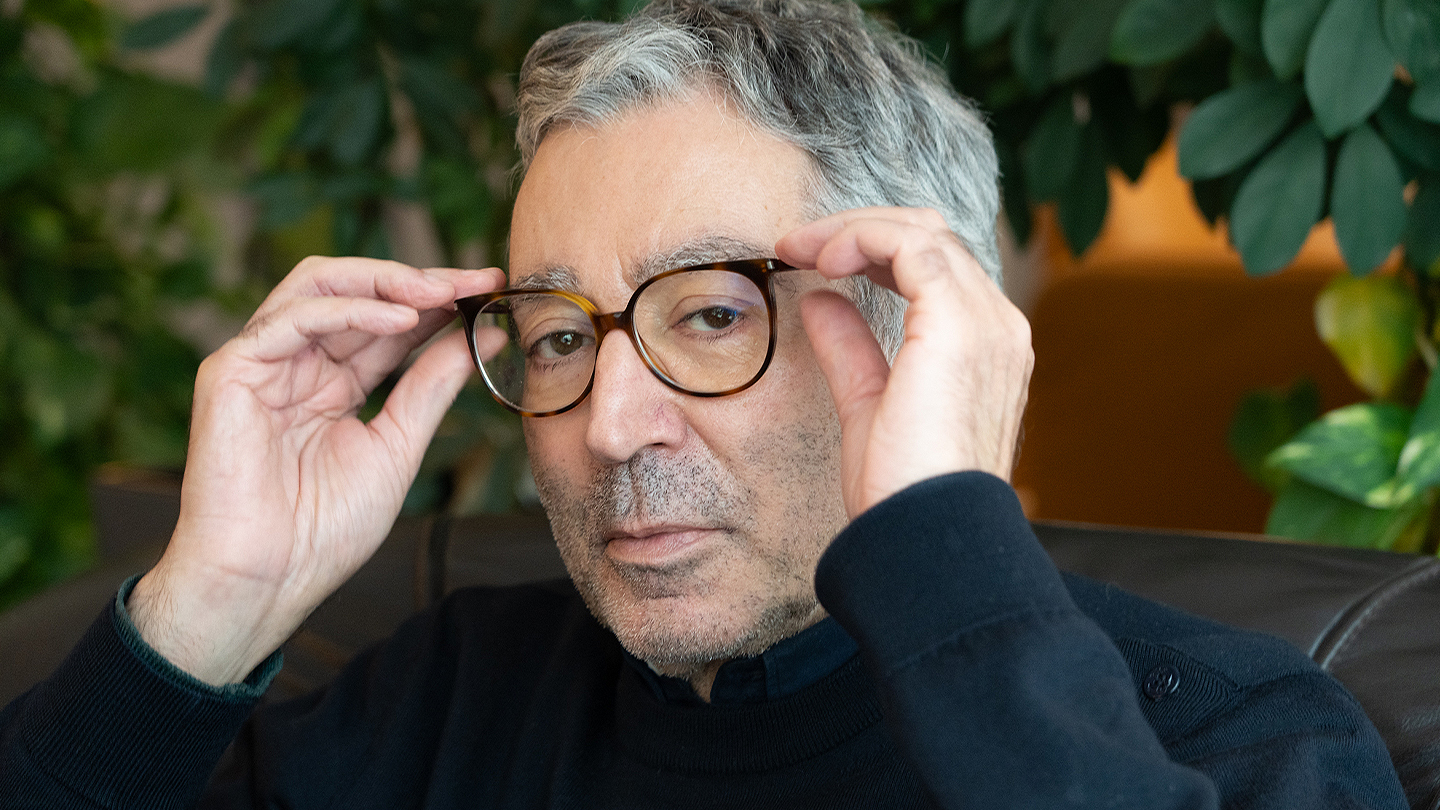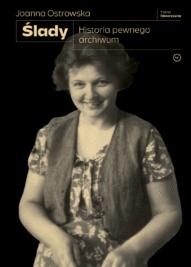Michał Sutowski: W Życiu, starości i śmierci kobiety z ludu przywołuje pan bardzo wymowną scenę: pana brat odwiedzający matkę narzeka, że jeszcze nie rozwiesiła jego ubrań po praniu. Na kanapie obok siedzi jego żona, Francuzka afrykańskiego pochodzenia. A matka mu odpowiada, że ma już 80 lat i jest jej ciężko, ale przecież to jego własna żona powinna mu robić pranie. I dodaje, że do czego to doszło, żeby biali musieli pracować zamiast czarnych! Mamy tu całą rodzinę z ciężko pracującej klasy ludowej, stereotypy płciowe i rasizm – ale co jest przyczyną czego?
Didier Eribon: Wszystkie się zazębiają i splatają ze sobą. Ta scena faktycznie ukazuje kilka wymiarów ich sytuacji naraz, ale ja chciałem nią przede wszystkim podkreślić, że moja matka przez całe życie była rasistką. Choć była córką imigranta z Andaluzji, a czasem nawet lubiła podkreślać, że ma „cygańską” krew, nieustannie narzekała na imigrantów we Francji. Opowiadała na ich temat straszne rzeczy.
Stereotypowo uważa się, że robotnicy we Francji stali się prawicowymi rasistami – zamiast na komunistów, zaczęli głosować na rodzinę Le Penów – dopiero po tym, jak poupadały fabryki, lewica ich porzuciła w imię neoliberalizmu, emancypacji kobiet i gejów, no i całego tego multikulturalizmu.
Nie, ja te rasistowskie wypowiedzi pamiętam z bardzo dawnych czasów i nie potrafię do końca zrozumieć, skąd się brał ten rasizm wśród francuskiej klasy robotniczej, nie tylko francuskiej zresztą. Jedyne, co mi przychodzi do głowy w przypadku mojej matki, to fakt, że ona czuła się gorsza przez całe swoje życie. Była półsierotą, niby miała matkę, ale ta ją oddała do sierocińca. Kiedy miała 14 lat, została służącą w burżuazyjnych domach – do takiej właśnie pracy wysyłano ją z tego domu dziecka. Potem zaczęła pracować w fabryce, w wytwórni szkła, w bardzo trudnych warunkach. Cały świat, cały system społeczny patrzył na nią z góry.
I ona też chciała na kogoś patrzeć z góry?
Myślę, że mogła poczuć się kimś wyżej, kiedy wypowiadała jakieś obraźliwe rzeczy o czarnych czy osobach z Bliskiego Wschodu. Kiedy opowiedziała mi tę historię z synem i synową przez telefon, próbowałem oponować: mamo, nie możesz mówić takich rzeczy, nie lepiej było mu powiedzieć, żeby sam sobie wyjął z pralki i rozwiesił to pranie?
No, to chyba byłaby sensowna odpowiedź 80-letniej matki synowi w takiej sytuacji?
Tyle że mój brat jest głupcem, niesłychanie dumnym ze swej męskości, przy czym dla niego męskość oznacza, że nie będzie robił prania, bo to jest zadanie dla kobiet. Dlatego ja nie potrafię się odnaleźć psychologicznie w takiej sytuacji, żyję w zupełnie innym świecie – chodzę na demonstracje antyrasistowskie, sam robię sobie pranie… Żeby to w ogóle zrozumieć i opisać, nie usprawiedliwić – muszę dopiero rozsupływać cały ten węzeł klasy, rasy, płci.
Przypomina pan w książce, co Simone de Beauvoir pisała o „drugiej płci”: mimo całej kulturowej specyfiki położenia kobiet, na koniec ona sięgała po kategorie ekonomiczne po „wyzysk” jako narzędzie opisu sytuacji. Czy to nie pasuje do sytuacji pana matki?
Tak uważam, tzn. ostatecznie jej zachowanie najlepiej da się wyjaśnić socjologicznie. Nie mogła pójść do szkoły średniej, bo raz, że była z sierocińca, a dwa, że wybuchła wojna – i miała w sobie mnóstwo żalu, że nie kontynuowała edukacji. Nie mówię nawet o pójściu na studia, ale nie udało się jej nawet ukończyć kursu maszynopisania – pewna kobieta z jednego z tych zamożnych domów, w których matka służyła jako dziecko, chciała opłacić jej naukę. Matce bardzo się podobało, ale po roku sierociniec, zgodnie z zasadami, skierował ją do innego domu i straciła tę szansę.
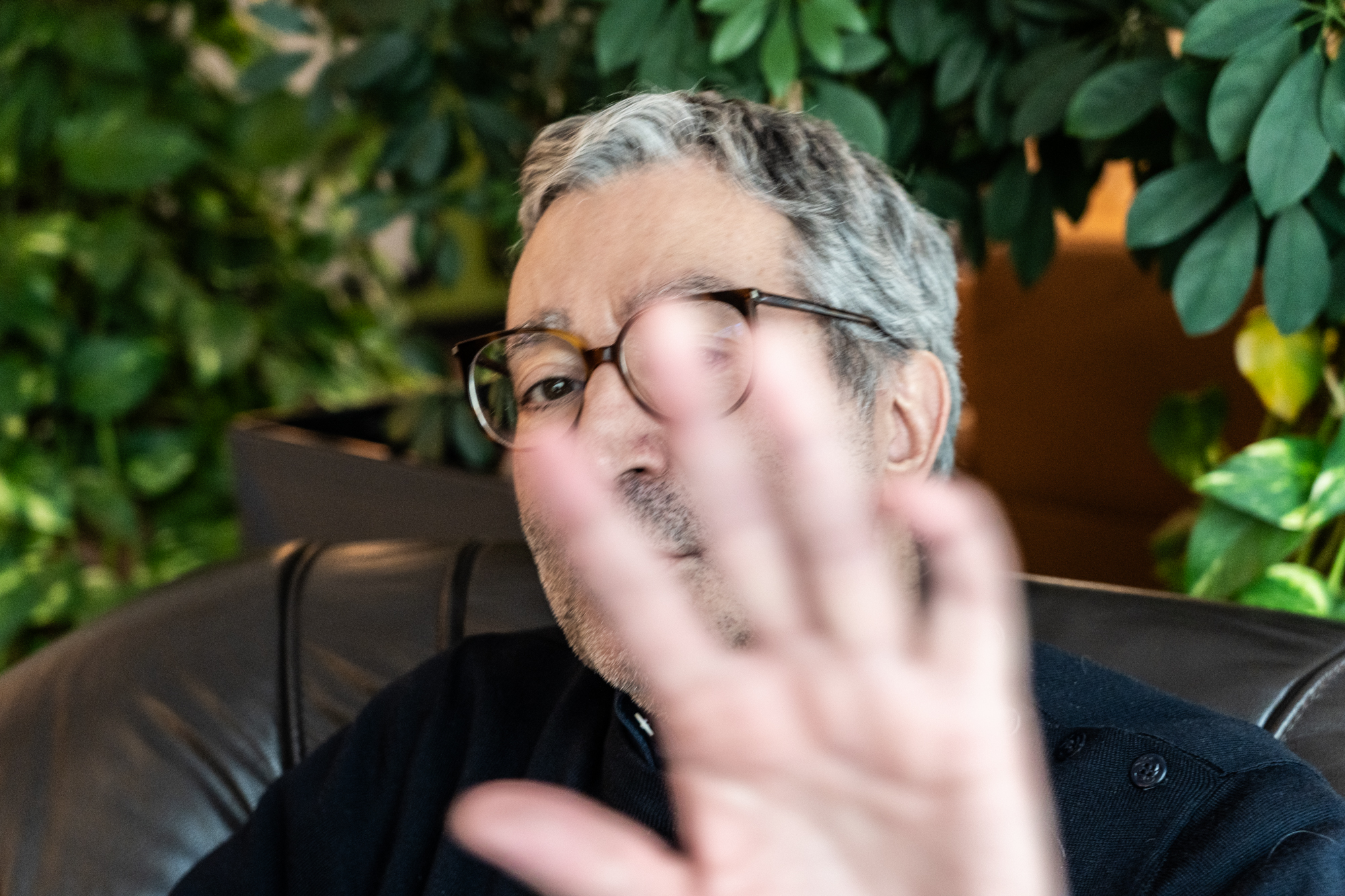
Dlatego też myślę, że cała jej umysłowość, sposób myślenia, emocje – to wszystko kształtowane było przez jej położenie klasowe. I jej reakcje też. Oczywiście, z czasem reagowała złością nawet na widok „zbyt wielu czarnych” w programie rozrywkowym w telewizji, ale jednak tamta historia, z synem i synową, dotyczyła przecież uciążliwej pracy, tego, kto ją właściwie powinien wykonywać. Choć nakłada się na to stereotyp podziału obowiązków kobiet i mężczyzn, czyli gender, no i rasowa hierarchia.
Podkreśla pan wiele razy, że świadomość robotników w czasach pana dzieciństwa – w latach 50. i 60. – kształtowały wielkie organizacje masowe, jak związek zawodowy CGT czy Francuska Partia Komunistyczna. Czy one nie miały antyrasistowskiego, internacjonalistycznego programu?
Miały, ich przywódcy, jak Georges Marchais czy wcześniej jeszcze Jacques Duclos, byli oficjalnie antyrasistami, choć rzadko podnosili te tematy w swoich wypowiedziach czy przemówieniach wiecowych. Ale głosowanie na lewicę przez moją matkę, jej polityczna afiliacja w ogóle nie przekładały się na osobiste przekonania i odczucia na temat osób pochodzących z Afryki Północnej czy Subsaharyjskiej. I w drugą stronę, jej osobiste opinie na ten temat nie wpływały na sposób głosowania czy uczestnictwo w demonstracjach. Moi rodzice mogli nawet pójść na manifestację związkową w obronie niepodległości Algierii – i dalej pozostawać rasistami.
A czy w tej fabryce szkła pańska matka miała niebiałych kolegów z pracy?
Oczywiście, że tak – czarnych wtedy nie było wielu, ale np. Algierczyków już całkiem sporo. Matka pracowała razem z tymi imigrantami, chodziła na strajki, do których często wzywały komunistyczne związki zawodowe, była dumna ze swej walki o swoje prawa, o lepsze płace i warunki pracy. A i tak ich nie lubiła, czarnych czy Algierczyków, choć wiem, że w czasie, kiedy była na strajku, to nie miało dużego znaczenia. Za to kiedy już w podeszłym wieku mówiła coś na ich temat, moje uwagi zawsze zbywała: jestem u siebie, mogę mówić, co mi się podoba.
Annie Ernaux wspomina rodziców z klasy ludowej – drobnych sklepikarzy na francuskiej prowincji, którzy bardzo wspierali ją, szczególnie matka, w jej aspiracjach edukacyjnych. U pana było inaczej? Rodzice byli sceptyczni?
Może nie sceptyczni – utrzymywali mnie, kiedy chodziłem do liceum, matka pracowała wtedy de facto na dwa etaty, poza fabryką dorabiała roznoszeniem ulotek. Mnie też do tego angażowała, co było dla mnie przedmiotem wstydu, bałem się, że ktoś z moich kolegów szkolnych mnie z nią zobaczy. Kiedy chciałem pójść na studia, nie oponowała. Tyle że dla rodziców już moja matura to było coś niewyobrażalnego, nie mieściło im się to w głowach. Oboje liczyli, że skończę naukę i pójdę do pracy, żeby dołożyć się do budżetu rodzinnego. I to jest moment, kiedy opuściłem rodzinę. Nie chciałem rezygnować ze studiów, żeby pójść do pracy.
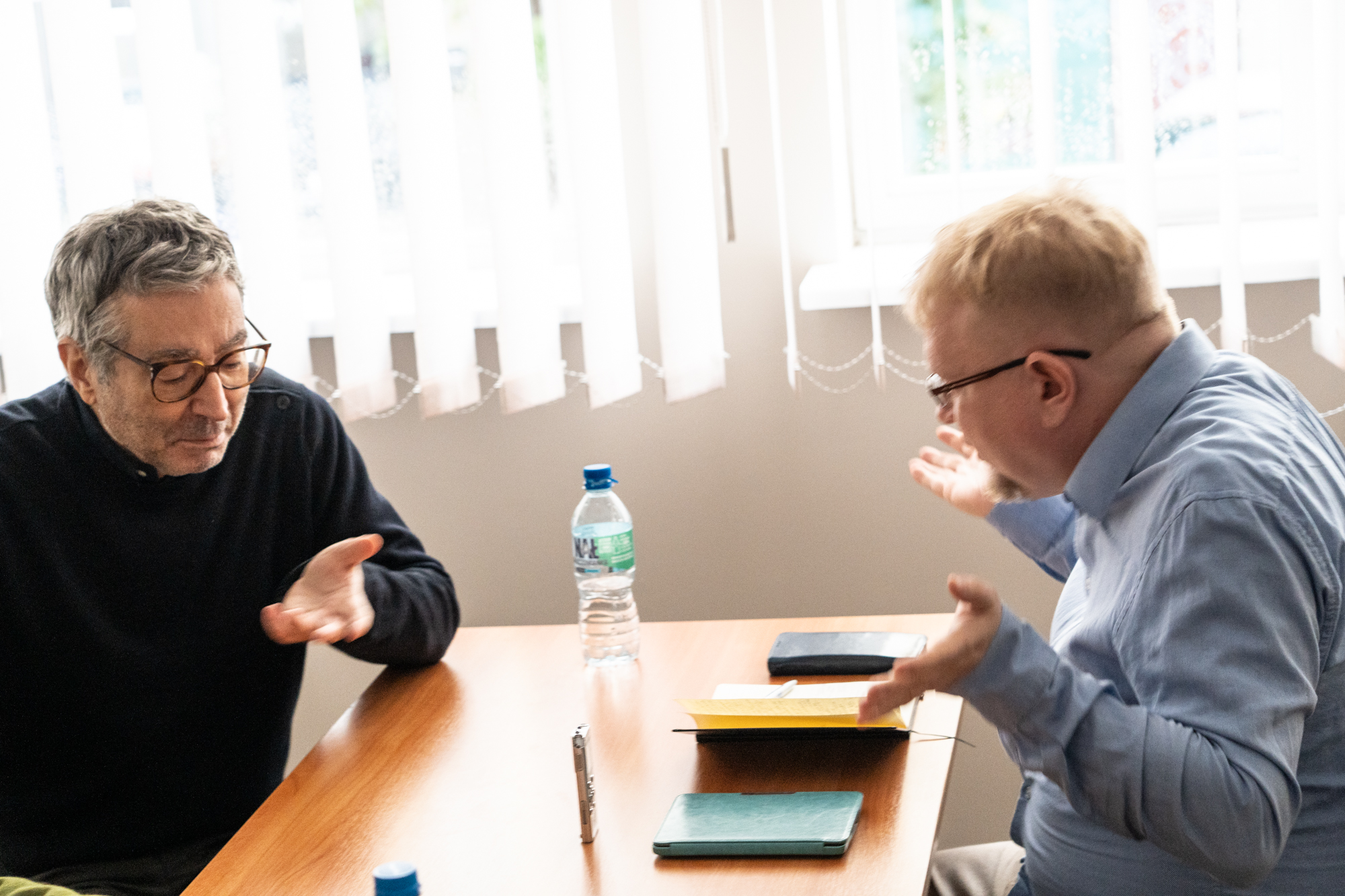
Ale przełom lat 60. i 70. to wciąż chyba są czasy awansu społecznego przez edukację, wielkiej szansy dla dzieci z rodzin, które wcześniej nie mogły na to liczyć. Dla wielu rodziców to było chyba ważne?
Dla nich też było, ale z perspektywy rodziców moje liceum to był właśnie awans i coś w rodzaju cudu – moi starsi bracia do liceum nie poszli. Ale już perspektywa studiowania przez kolejne 5–6 lat to było dla nich za wiele. A jeszcze jak powiedziałem, że chcę studiować filozofię… to była z ich punktu widzenia strata czasu i pieniędzy.
Kiedy poczuł się pan jak zdrajca swojej klasy?
Od razu i nie od razu. Bo ten proces dystansowania się od mojej rodziny i środowiska zaczął się bardzo wcześnie, kiedy miałem 15–16 lat. Czytałem Marguerite Duras, jej teksty o rasizmie i o Algierii, ale też Marksa i Hegla. Cała moja rodzina była robotnicza, ale nikt w niej nie czytał o walce klas. W liceum zacząłem też słuchać muzyki klasycznej, matka robiła mi docinki, że jak puszczam to na adapterze, to się czuje jak na mszy. Chodziłem na filmy Godarda, czechosłowackiej Nowej Fali, kino brazylijskie Glaubera Rochy. To wszystko mnie od nich oddalało.
A kiedy zrozumiał pan, że jest z innego świata?
Jak opuściłem rodzinę, rodzinne miasto i wyjechałem do Paryża, na studia filozoficzne na Sorbonie. Inni ludzie, inny świat – a potem jeszcze praca dziennikarza, pisanie do gazet. Tyle że ja w ogóle nie widziałem tego w kategoriach „zdrady klasowej”, tzn. to było właśnie to, ale ja tak nie myślałem.
Był pan zdrajcą klasowym w sobie, ale nie dla siebie?
Tak, chyba tak. Ale refleksja na ten temat przyszła do mnie wiele lat później, tak naprawdę dopiero przy Powrocie do Reims, który zacząłem pisać w roku 2006 i opublikowałem trzy lata później – byłem już wtedy pięćdziesięciolatkiem. Jasne, że myślałem o tym już wcześniej, ale dopiero po śmierci ojca musiałem skonfrontować się na poważnie z całym moim położeniem: dlaczego tak bardzo go nienawidzę? Bo jest durnym homofobem, to jasne. Ale też dlatego, że jest robotnikiem bez wykształcenia. I wtedy zacząłem mierzyć się właśnie z tym faktem, że mój dystans wobec własnej rodziny wziął się z tego pragnienia…
Żeby stać się kimś innym?
Kimś innym, czyli częścią kulturalnego świata, w którym chodzi się do teatru, czyta filozofów i dyskutuje o teoriach, czego w mojej rodzinie nigdy nie było. I przy okazji tej konfrontacji zacząłem się zastanawiać, dlaczego wyjechałem i co to znaczy, że wracam po 30 latach. I w jakim sensie „wracam”, bo ani mnie tamtego, ani tego miasta już przecież nie ma. Żeby to wszystko jakoś rozsupłać, zrozumieć, stosuję te same narzędzia – socjologii, filozofii, literatury – dla których, żeby je poznać, chciałem czy musiałem wyjechać.
Kiedy czytam o tym, jak pan zbliżył się chyba najbardziej w swoim świadomym życiu do matki – kiedy po śmierci męża poczuła się wolna i wdała się w romans w bardzo dojrzałym wieku – to nie teorie socjologiczne pomagały ją panu rozumieć, tylko zwykła, a może niezwykła, empatia.
Rzeczywiście, byliśmy wtedy blisko. W czasie jednej z rozmów przez telefon matka spytała ostrożnie: „czy myślisz, że można się zakochać, będąc w moim wieku?”. „A czemu pytasz? Kochasz kogoś?” No i powiedziała mi w końcu, że tak, ale żebym nie mówił braciom, bo oni tego nie zrozumieją. Zaczęła opowiadać, kto to jest, że zakochała się w sąsiedzie – i to był faktycznie bardzo intensywny romans dwojga ludzi już po osiemdziesiątce, do tego jeszcze on miał żonę, z którą mieszkał w domku niedaleko. Pytała mnie, co ma robić.
Był pan za?
Mówiłem, że nie powinna mnie o to pytać – niech robi, co uważa za słuszne i co da jej szczęście. A była szczęśliwa. Tylko nie mogła się powstrzymać i powiedziała pozostałym synom, a oni oczywiście byli wściekli. To się nie mieściło w ich…
…drobnomieszczańskiej moralności?
Raczej robotniczej – jak tak można, czy matka oszalała, a w ogóle kto to widział, ledwie trzy lata po śmieci ojca! Zaczęli mi wysyłać wiadomości, że to nie do pomyślenia. Odpowiadałem, że to nie ich sprawa.
Matka pana akurat zapytała pierwszego, bo wierzyła, że ją pan zrozumie?
Tak mi też powiedział mój partner, Geoffroy: „powiedziała ci, bo jesteś gejem”. I faktycznie, po tym, jak moja seksualność, moja uczuciowość, moje emocje przez całe życie były obrażane, wyszydzane, obarczane stygmatem winy, odrzucane – ja byłem tą właściwą osobą do zadania pytania: co powinnam zrobić? Po tym zaczęliśmy dużo częściej rozmawiać przez telefon, częściej ją też widywałem w Reims. To trwało przez kilka lat.
To jej szczęście i pana akceptacja was też zbliżyły?
Moja matka była nieszczęśliwa przez całe swoje życie, nie lubiła mojego ojca, nie kochała go, powiedziałbym wręcz, że go nienawidziła. A to znaczy, że cierpiała od 21. roku życia aż do śmierci ojca, przez 55 lat małżeństwa. Kiedy spotkała tego faceta, zakochała się po uszy. To nie było tylko pasmo radości – była zazdrosna i miała pretensje, że nie chce się rozwieść z żoną i zamieszkać razem z nią. Kłócili się ciągle, ale naprawdę bardzo się kochali. Dla nas to też był lepszy czas.
Pana książka jest o starzeniu się w zamożnym, choć dość nierównym kraju XXI wieku. Opisał pan ostatnie lata życia matki, coraz mniej samodzielnej, z pierwszymi objawami zaburzeń umysłowych, coraz bardziej zależnej od innych. W końcu, gdy nie mogła już mieszkać sama, nakłoniliście ją, tzn. pan razem z braćmi, żeby zamieszkała w publicznym domu opieki – na taki było was stać, w takim było miejsce, a poza tym ponoć prywatne wcale nie są lepsze. Kiedyś to był obowiązek rodziny opiekować się starszymi.
Tak, to w praktyce znaczyło: obowiązek córek, wnuczek, czasem synowych.
A teraz ludzie przenoszą się do innych miast, do tego odwróciły się proporcje: jest dużo starych ludzi i mało młodych. Rodzice i dziadkowie długo żyją, dzieci do opiekowania się nimi jest mniej – wasza rodzina z czwórką synów to był już raczej ewenement, przynajmniej w mieście.
Obowiązkiem państwa, na które płacimy podatki, jest zająć się ludźmi niesamodzielnymi lub przynajmniej pomóc się nimi zająć ich bliskim. Struktura rodziny się zmieniła przez ostatnie pół wieku, sposób mieszkania też się zmienił – nie ma całej wioski do wychowywania dzieci ani opiekowania się starcami, których było zresztą dużo mniej. W pewnym artykule opublikowanym na temat książki w Polsce autorka pytała, dlaczego nie zabrałem matki do siebie.
Rozważał pan? Albo pana bracia?
Jeden mieszka z partnerką na Reunionie – to jest 700 kilometrów na wschód, tyle że od Madagaskaru. Drugi w mieszkaniu socjalnym w Walonii. Trzeci z rodziną na południowym zachodzie Francji.
Pan w Paryżu.
Tak, w dwupokojowym, 50-metrowym mieszkaniu. Bardzo je lubię, ale tam nie ma tyle miejsca, zresztą matka i tak nie zgodziłaby się tam zamieszkać. Nikt nie może się ode mnie domagać, żebym zajmował się matką dzień i noc, mył ją i zmieniał jej pieluchy, przepraszam bardzo. Ja wiem, że wiele kobiet tak robi, że poczuwa się do takiego obowiązku, ale to nie powinno tak wyglądać. W naszym kraju mnóstwo jest kobiet po 50., które spędzają lata, zajmując się swoimi rodzicami, ale tak nie wygląda postępowe, demokratyczne społeczeństwo, o jakim marzymy. Cała ta historia o obowiązkach rodzinnych to jest przerzucanie rozwiązań systemowych problemów na jednostki i zwalnianie państwa, polityków czy urzędników z ich obowiązków. Bo tak, zajęcie się starszymi to jest obowiązek państwa opiekuńczego, po to je między innymi wymyślono.
Niby się opiekuje, ale pisze pan, że matka dzwoniła do pana nocami, nagrywała się na sekretarkę i skarżyła, że nie może się ruszyć, nikt tam nie chce się nią zająć, a pielęgniarki wiecznie nie mają czasu.
Ja mówię o przyzwoitych domach opieki, które zatrudniają wystarczająco dużo personelu, lekarzy, pielęgniarek i zapewniają godne warunki. Naprawdę uważam, że to jest postulat polityczny i że trzeba z niego rozliczać partie i kandydatów w wyborach. Czy oni w ogóle mają to na agendzie? Tego nie można zrzucić na barki rodzin. Ja nawet nie mam żony, bo jestem gejem, ale też nie wyobrażam sobie przyjaciół w San Francisco czy Londynie, że będą się swoimi niedołężnymi rodzicami zajmować w domu. A, jeszcze ta recenzentka pytała, dlaczego ja sobie nie wezmę kogoś do pomocy. Co to jest, przepraszam, za feminizm, jeśli jako rozwiązanie się proponuje, żeby wynająć emigrantkę z Polski?
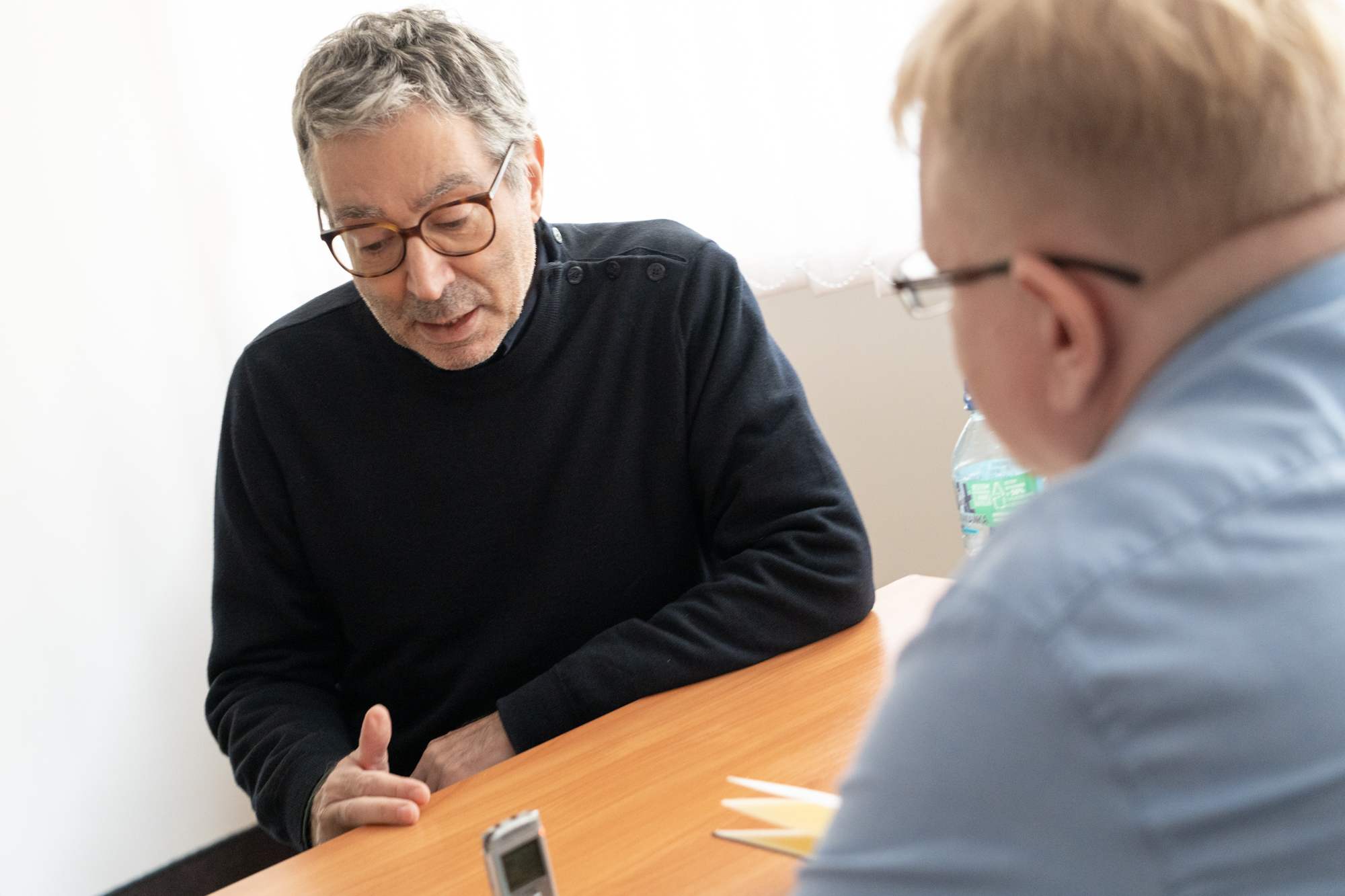
Polskie rodziny wynajmują imigrantki ze wschodu.
Rozwiązaniem jest sektor publiczny, dofinansowany i zorganizowany – miejsca, w których bliscy mogą odwiedzać swoich rodziców i dziadków. Tymczasem we Francji sytuacja jest skandaliczna. To był jeden z powodów, dla których pisałem tę książkę: szlag mnie trafił, kiedy usłyszałem od matki, jak to naprawdę wygląda, a potem doczytałem o tym, jak wygląda opieka nad starszymi we Francji. To nie jest jakiś marginalny problem, bo z tych samych zmian w strukturze demograficznej wynika, że coraz więcej rodzin cierpi z tego powodu.
W swojej książce pisze pan o problemie wyrażania się kolejnych „wyklętych ludów ziemi”: robotników, czarnych, kobiet, mniejszości seksualnych. One wszystkie walczyły czy wciąż walczą o to, by mówić własnym głosem – o miejscu w fabryce, w domu, w urzędach, w debacie publicznej. I teraz dochodzimy do kolejnej grupy, czyli zależnych od opieki osób starszych…
Które nie mogą mówić w swoim imieniu. Kiedy jesteś robotnikiem, możesz iść na demonstrację pierwszomajową, wstąpić do związku zawodowego, zastrajkować. Będąc kobietą, możesz działać w ruchu feministycznym czy po prostu różnych środowiskach kobiecych. Czarni, osoby homoseksualne czy transpłciowe, nawet nielegalni imigranci mają różne organizacje, ruchy, kampanie, mogą pisać petycje. Jeśli jesteś jak moja matka, przykuty do łóżka w domu opieki i ledwo rozumiesz, co się dzieje wokół, tylko cierpisz i wiesz, że niedługo umrzesz – to są słabe warunki na mobilizację do działania zbiorowego.
Jasne, że tak, ale są przecież dzieci, bliscy, siostry, córki, synowe. Inne grupy, które walczyły o podmiotowość, też zazwyczaj delegowały głos na kogoś innego: ruch sufrażystek tworzyły wykształcone, białe kobiety z warstw mieszczańskich, w partiach socjaldemokratycznych dominowali robotnicy wykwalifikowani – a jednak te ruchy mówiły w imieniu większych zbiorowości. Pana matka nie mogła demonstrować, ale takich osób jak pan – ich bliskich, także tych, którzy opiekują się jej podobnymi bezpośrednio – jest przecież coraz więcej.
Tak, ale jak jedziesz odwiedzać swą matkę czy babkę w domu opieki, to niespecjalnie masz czas poznać inne rodziny w podobnej sytuacji, to nie jest dobra sceneria do nabierania wzajemnego zaufania i knucia wspólnej demonstracji. Pochodzimy z różnych miast, także z różnych klas społecznych, wielu z nas nie ma czasu, siły czy po prostu ochoty na organizowanie się do politycznego działania. To nie są okoliczności do mobilizowania ruchu protestu.
A jak pan widzi swoją rolę? Napisał pan w końcu książkę, która ma polityczny wydźwięk.
Oczywiście, domagam się przecież większego wsparcia państwa dla takich osób jak moja matka. Kiedy Simone de Beauvoir publikowała swą książkę o starości w roku 1970, mówiła, że chce być głosem pariasów – i mnie chodzi o to samo. Żeby być rzecznikiem ludzi, którzy nie mogą mówić za siebie. Nie zorganizuję ruchu politycznego, ale przynajmniej mogę mówić, wydać książkę, udzielać wywiadów w prasie, radiu i telewizji.
Przywołuje pan w książce pojęcie Pierre’a Bourdieu – „efekt teorii”. Innymi słowy, że żeby powstała np. klasa robotnicza czy płeć jako pewne zjawisko społeczne, ktoś musi najpierw ją opowiedzieć, inaczej mówiąc: nadać ramy rzeczywistości społecznej.
Żeby zobaczyć klasę społeczną, potrzebne jest jej pojęcie, rama poznawcza. A kiedy ona już będzie widoczna, konsekwencją może być organizacja, np. związki zawodowe czy partia polityczna i nowy sposób rozgrywania konfliktu społecznego. Oczywiście, to jest dość złożony proces, te ramy pojęciowe nie są dowolne – chodzi raczej o to, że pewnej istniejącej rzeczywistości społecznej nadaje się znaczenia, a te znaczenia pozwalają nam rzeczywistość współkształtować.
Z klasą się jakoś udało, z płcią chyba też – za tymi pojęciami, ramami poznawczymi poszły zmiany świadomości i organizacja polityczna.
Tak, zaczęła się tworzyć nowa rzeczywistość, kobiety też zaczęły mówić o sobie w kategoriach „my”, choć wcześniej nie było to oczywiste. Ale domyślam się, że zmierza pan do kwestii: czy można w ten sam sposób potraktować „wiek”, jako nową kategorię.
Można?
Jako kategorię – polityczną, intelektualną, kulturową – oczywiście, że można i trzeba. Tyle że w odróżnieniu od tamtych: klasy, płci, rasy itp., kategoria wieku nie zbuduje nam analogicznej, nowej rzeczywistości, z powodów, o których już mówiliśmy: ta grupa sama się nie zmobilizuje, ona nie może zaistnieć samodzielnie, potrzebuje jakiegoś rzecznika. I to nie będą też udręczone córki czy synowe, których nikt nie chce słuchać. Ewentualnie ktoś rozpoznawalny, jakaś wielka pisarka, jak choćby Annie Ernaux w Pewnej kobiecie, może opowiedzieć tę historię, z zewnątrz nadać ramy tej kategorii. Napisze np. powieść o swojej matce, ona będzie szeroko czytana i nagradzana – córka powie w ten sposób coś i o matce, i o systemie…
Ale ja mam wrażenie, że największy problem nie polega na tym, że ktoś mówi w czyimś imieniu, za kogoś, jakaś część za całość – bo to w polityce nic nowego. Tylko że na końcu ci „reprezentowani” nie mogą się wykazać… produktywnością? Użytecznością? Dla gospodarki? Dla demokracji?
I jeszcze raz kłania się Simone de Beauvoir: tak jak jednym z kluczy do analizy płci był dla niej wyzysk ekonomiczny, tak w przypadku ludzi starych – nieproduktywność, bezużyteczność. To dlatego wypychamy starych na margines, przeznaczamy dla nich w świecie społecznym takie miejsce, żeby zniknęli nam z oczu. Ale przecież poza logiką rynkową, produktywistyczną jest coś takiego jak wspólnota demokratyczna.
To znaczy?
W takiej wspólnocie ludzie „nieproduktywni” zasługują na opiekę choćby z tego tytułu, że kiedyś pracowali, że płacili podatki, że to na ich barkach spoczywało utrzymanie rodzin, gospodarki, państwa. I dlatego mają prawo do komfortowej starości w domu opieki, gdzie nie ma wakatów personelu, gdzie są lekarze, pielęgniarki, psychiatrzy. Ale poza wartościami demokratyczno-politycznymi są jeszcze czysto humanistyczne: jako społeczeństwo mamy obowiązek zająć się najsłabszymi, porzuconymi, najbardziej kruchymi spośród nas.
Ponieważ moje środowisko wydało w Polsce książki Thomasa Piketty’ego, muszę pana zapytać o stosunek do tego ekonomisty. Pan go, zdaje się, nie lubi, a przecież on postuluje nowy socjalizm na XXI wiek!
Piketty to liberał, zwolennik merytokracji, a jego pierwsza głośna książka, Kapitał w XXI wieku, była bardzo konserwatywna. Oczywiście, on pisze, że nierówności są za duże i że to niesprawiedliwe, ale już we wstępie upomina lewicę za rzekome „lenistwo w myśleniu” i stwierdza, że przecież niektóre nierówności są sprawiedliwe, pod warunkiem że oparte na zasługach czy wysiłku, i na pracy.
A nie są?
Moja matka żyła tak, jak żyła, i mało zarabiała dlatego, że była kobietą z klasy robotniczej, a nie dlatego, że brakowało jej zasług i migała się od pracy. Pracowała bardzo ciężko, mój ojciec i reszta mojej rodziny też. Można o to samo zapytać tę kobietę, która sprząta jego gabinet na uczelni – czy za mało wkłada w tę pracę wysiłku? Piketty praktycznie wymazał ze swego dzieła pojęcie klasy społecznej, nie pisze o tym, jak wielkie znaczenie dla reprodukcji klasowej ma kapitał kulturowy. Tam w ogóle zresztą nie ma teorii kapitału, choć to słowo pada w tytule – mamy mnóstwo danych i liczb, które pokazują, że na dziedziczeniu wychodzi się lepiej niż na pracy.
Jak u Balzaka, w scenie rozmowy Vautrina z Rastignakiem z Ojca Goriot.
Wszystko to prawda – że kapitał jest przekazywany z pokolenia na pokolenie. Ale jak on się w ogóle wytwarza? O kolonializmie też jakby zapomniał. On po fali krytyki, także z mojej strony, zaczął przyznawać, że tak, że faktycznie, klasy społeczne istnieją. Choć zarazem nie odpowiada mu „XIX-wieczny marksizm”. Ale moi rodzice jeszcze zdążyli pracować w wielkiej fabryce, żyli konfliktem pracy i kapitału! Piketty kiedyś w wywiadzie narzekał, że jako pracownik naukowy nie ma pieniędzy, by kupić sobie mieszkanie w Paryżu – to był najwyraźniej impuls do napisania jego książki. Ale moja matka nie mogła sobie kupić mieszkania ani w Paryżu, ani w Reims, całe życie mieszkała w lokalach socjalnych. Mam wrażenie, że on żyje taką opozycją między różnymi frakcjami burżuazji: tymi wykształconymi, jak on sam, i tymi wielkimi posiadaczami majątków; ale świat klas społecznych tak naprawdę w tym obrazie znika. Bardzo, bardzo wkurzyła mnie ta jego książka.
**
Didier Eribon – francuski socjolog i filozof. Pracuje na uniwersytecie w Amiens, wykładał na wielu uczelniach, m.in. w Berkeley, Princeton, Cambridge i Walencji. Napisał kilkanaście książek poświęconych socjologii, filozofii, historii idei oraz gender studies. Po polsku ukazały się m.in. biografia Michela Foucault, rozmowa z Georges’em Dumézilem Na tropie Indoeuropejczyków. Mity i epopeje, rozmowa z Claudem Lévi-Straussem Z bliska i z oddali oraz Powrót do Reims. Książka ta doczekała się tłumaczeń na wiele języków i została kilkukrotnie przeniesiona na deski teatru, m.in. przez Laurenta Hatata, Thomasa Ostermeiera oraz Katarzynę Kalwat. W 2024 roku w przekładzie Jacka Giszczaka ukazała się jego najnowsza książka Życie, starość i śmierć kobiety z ludu.

 Wspieraj
Wspieraj 

 Wspieraj
Wspieraj  Wydawnictwo
Wydawnictwo 
 Zaloguj się
Zaloguj się 
